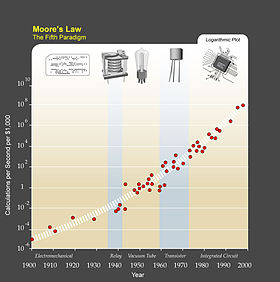Glossary of terms used on this site
English Dictionary![]()
فرهنگ واژگان
| Term | Definition |
|---|---|
| Foresight |
Synonyms:
foresightForesight In futures studies, especially in Europe, the term "foresight" has become widely used to describe activities such as:
In the last decade, scenario methods, for example, have become widely used in some European countries in policy-making.[1] The FORSOCIETY network brings together national Foresight teams from most European countries, and the European Foresight Monitoring Project is collating material on Foresight activities around the world. In addition, foresight methods are being used more and more in regional planning and decision –making (“regional foresight”). Several non-European think-tanks like Strategic Foresight Group are also enagaged in foresight studies. The foresight of futures studies is also known as strategic foresight. this foresight used by and describing professional futurists trained in Master's programs is the research-driven practice of exploring expected and alternative futures and guiding futures to inform strategy. Foresight includes understanding the relevant recent past; scanning to collect insight about present, futuring to describe the understood future including trend research; environment research to explore possible trend breaks from developments on the fringe and other divergencies that may lead to alternative futures; visioning to define preferred future states; designing strategies to craft this future; and adapting the present forces to implement this plan. There is notable but not complete overlap between foresight and strategic planning, change management, forecasting, and design thinking. At the same time, the use of foresight for companies (“corporate foresight”) is becoming more professional and widespread [2][3][4][5] Corporate foresight is used to support strategic management, identify new business fields[6][7] and increase the innovation capacity of a firm.[8] Foresight is not the same as futures research or strategic planning. It encompasses a range of approaches that combine the three components mentioned above, which may be recast as:
Much futures research has been rather ivory tower work, but Foresight programmes were designed to influence policy - often R&D policy. Much technology policy had been very elitist; Foresight attempts to go beyond the "usual suspects" and gather widely distributed intelligence. These three lines of work were already common in Francophone futures studies going by the name la prospective. But in the 1990s we began to see what became an explosion of systematic organisation of these methods in large scale TECHNOLOGY FORESIGHT programmes in Europe and more widely. Foresight thus draws on traditions of work in long-range planning and strategic planning, horizontal policymaking and democratic planning, and participatory futures studies - but was also highly influenced by systemic approaches to innovation studies, science and technology policy, and analysis of "critical technologies". Many of the methods that are commonly associated with Foresight - Delphi surveys, scenario workshops, etc. - derive from the futures field. So does the fact that Foresight is concerned with:
|
| Futures studies | Futures studies (also called futurology) is the study of postulating possible, probable, and preferable futures and the worldviews and myths that underlie them. In general, it can be considered as a branch of the social sciences and parallel to the field of history. Futures studies (colloquially called "futures" by many of the field's practitioners) seeks to understand what is likely to continue and what could plausibly change. Part of the discipline thus seeks a systematic and pattern-based understanding of past and present, and to determine the likelihood of future events and trends.[1]
کلیک ها: 1946 Synonyms:
futurology |


